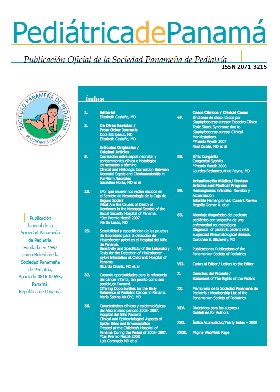Is cannabis useful in refractory epilepsy?
[ Is cannabis useful in refractory epilepsy? ]2022-08-20
Abstract
ResumenA pesar del desarrollo en las últimas décadas de más de 20 drogas antiepilépticas (DAE), el 25 a 30% de los epilépticos siguen siendo refractarios a los fármacos. El fracaso terapéutico y los efectos adversos de la politerapia determinan que los padres busquen nuevas alternativas terapéuticas, sin esperar los tiempos muchas veces prolongados de la evidencia científica. Las propiedades antiepilépticas del cannabis se conocen hace más de 4 milenios, persistiendo su uso hasta inicios del siglo pasado en el cual la aparición de nuevas DAE y su prohibición legal provocan su retiro medicinal. A partir del mejor conocimiento de la composición de los cannabinoides y del sistema endocannabinoide, se realizan estudios preclínicos y clínicos que en su mayoría muestran resultados favorables con buen margen de seguridad especialmente de los productos con mayor concentración de cannabidiol (CBD). Si bien pensamos que no será la solución milagrosa y definitiva de éstos niños, en la actualidad es una alternativa que puede mejorar la calidad de vida en epilepsias fármaco resistentes (EFR), no quirúrgicas, que no responden a dieta cetogénica. El desafío futuro será develar cual es la composición, dosis más eficaz y segura de cannabinoides, así como seleccionar los síndromes epilépticos candidatos para dicho tratamiento.Abstract AbstractDespite the fact that in the last decades more than 20 antiepileptic drugs have been developed, 25-30% of epileptics remain drug-resistant. Therapeutic failure and the adverse effects of polytherapy cause parents to seek new therapeutic alternatives, without waiting for the (often-prolonged) scientific evidence. The anti-epileptic properties of the cannabis are known already more than 4 millennia, persisting its use until beginnings of last century in, which the appearance of new antiepileptic drugs and the legal prohibition of cannabis, caused its medical withdrawal. From better understanding of the composition of cannabinoids and endocannabinoid system, there are performed preclinical and clinical studies that, mostly, show favorable results with good safety margin, especially in case of the products with higher concentration of cannabidiol. While we think that, it will not be the miracle and definitive solution of these children, there is currently an alternative that may involve improvements in the quality of life in cases of epilepsy considered as drug resistant, non-surgical, that do not respond to the ketogenic diet. The future challenge will be to find the right composition, and the most effective and safe dose of cannabinoids, as well as to select the epileptic syndromes that are candidates for such treatment.
License
Copyright (c) 2020 Infomedic InternationalDerechos autoriales y de reproducibilidad. La Revista Pediátrica de Panamá es un ente académico, sin fines de lucro, que forma parte de la Sociedad Panameña de Pediatría. Sus publicaciones son de tipo ACCESO GRATUITO y PERMANENTE de su contenido para uso individual y académico, sin restricción. Los derechos autoriales de cada artículo son retenidos por sus autores. Al Publicar en la Revista, el autor otorga Licencia permanente, exclusiva, e irrevocable a la Sociedad para la edición del manuscrito, y otorga a la empresa editorial, Infomedic International Licencia de uso de distribución, indexación y comercial exclusiva, permanente e irrevocable de su contenido y para la generación de productos y servicios derivados del mismo.






